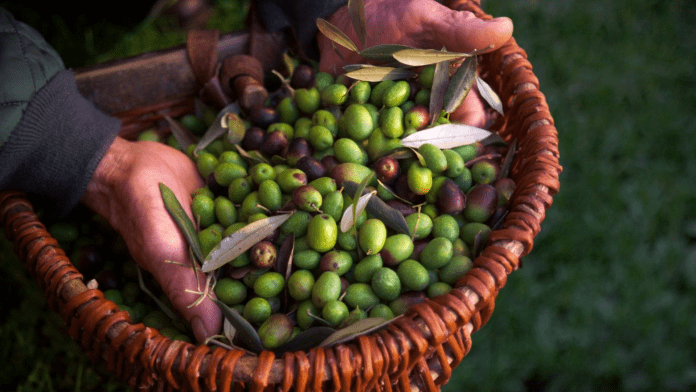As a food manufacturer, the quality of your raw materials is a critical factor that can make or break your business. Using high-quality raw materials can help ensure that your products are consistent, safe, and delicious.
It is also essential for ensuring food safety. Whether it’s fruits and vegetables, meats, dairy, grains or any other ingredients, the quality of the raw materials directly affects the final product’s flavour and texture. Low-quality ingredients can lead to off-flavours, spoilage, and an overall subpar product that customers are unlikely to buy again.
Poor quality of raw ingredients can also lead to foodborne diseases & illnesses. Foodborne illness outbreaks can lead to devastating consequences for both consumers and food manufacturers. Using high-quality ingredients and working with reputable suppliers that adhere to strict quality and safety standards can help prevent foodborne illness and promote public health.
However, sourcing high-quality raw materials can be a daunting task. Manufacturers need to conduct extensive research and build relationships with suppliers that have a proven track record of quality and reliability. In this article, we will guide you to identify and source high-quality raw materials for your food business. We will also discuss various factors that you should consider while selecting raw materials, including their origin, certifications, and processing methods.
1. Understand & check certifications:
When it comes to sourcing raw materials, certification is vital. In India, the Food Safety and Standards Authority of India (FSSAI) is the regulatory body responsible for ensuring food safety and hygiene standards.
The FSSAI sets guidelines for food business operators and issues licenses and certifications to ensure that food products are safe and of high quality. Make sure that you source raw materials from FSSAI-approved suppliers who follow these guidelines and have necessary certifications such as the FSSAI License, ISO, and HACCP.
2. Choose local suppliers:
Sourcing from local suppliers can have many benefits for your food business. Firstly, it can reduce transportation costs and the carbon footprint associated with long-distance transportation. Secondly, local suppliers are often more familiar with the local market and can provide insights into the best seasonal produce, availability, and pricing. Finally, sourcing locally can help support the local economy and build relationships with your suppliers.
3. Visit the supplier’s facility:
To ensure that your raw materials are of high quality, it is essential to inspect the supplier’s facility personally. This can give you a better understanding of the supplier’s processes, quality control measures, and hygiene practices. You can also assess the supplier’s storage conditions, transportation methods, and packaging quality to ensure that the raw materials are not contaminated during transportation and storage.
4. Conduct quality checks:
Conducting quality checks is an essential step in ensuring that your raw materials meet your quality standards. You can conduct a variety of tests, including sensory evaluation, chemical analysis, and microbiological testing. These tests can help identify any contamination, adulteration, or spoilage of raw materials. It is recommended to conduct these tests regularly to ensure that the quality of raw materials is consistent.
5. Build strong relationships with your suppliers
Building strong relationships with your suppliers can be a valuable asset to your food business. Regular communication with suppliers can help you stay informed about any changes in the market, including pricing and availability. It can also help you negotiate better terms, such as longer payment terms, and ensure that your supplier prioritizes your orders.
Additionally, a good relationship can help you address any quality issues and resolve them quickly and efficiently.
6. Consider the cost:
While quality should be your top priority when sourcing raw materials, the cost is also an important factor to consider. Make sure that you do not compromise on quality to save costs. However, you can negotiate with your suppliers for better pricing, especially if you are sourcing in bulk.
Additionally, you can explore alternative suppliers or raw materials that may offer similar quality at a lower cost.
7. Stay updated on industry trends:
The food industry is constantly evolving, and it is essential to stay updated on the latest trends, such as new raw materials, processing methods, and packaging innovations. Staying updated can help you identify new opportunities to improve your product quality, increase efficiency, and reduce costs.
8. Seek recommendations from peers:
Networking and seeking recommendations from industry experts and peers can help you identify reliable suppliers and manufacturers. Attend industry events and conferences to connect with others in your field and gather information on potential suppliers.
9. Use online resources:
There are several online resources and directories available that can help you locate suppliers and manufacturers. Websites like Alibaba, IndiaMart, and TradeIndia allow you to search for suppliers and manufacturers by product, location, and other parameters. You can also check out supplier directories on industry association websites.
10. Negotiate pricing and terms:
Once you have identified potential suppliers and manufacturers, it is important to negotiate pricing and terms. Work with them to ensure that you get the best pricing possible while maintaining quality standards. Don’t be afraid to negotiate on terms like delivery schedules, payment terms, and minimum order quantities. Building a good relationship with your suppliers can help you negotiate better deals in the long run.





